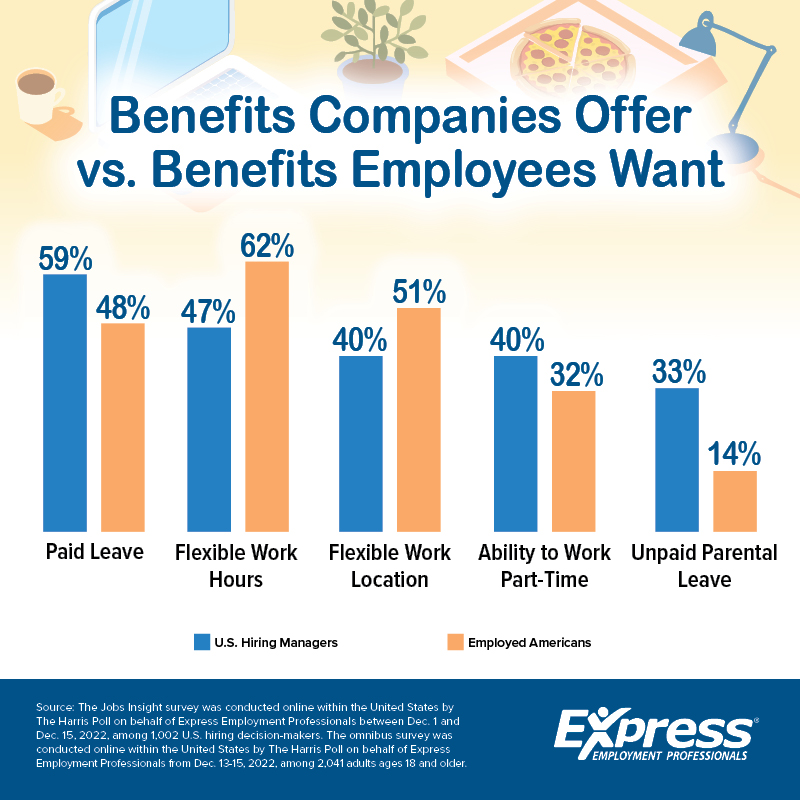Flexibility remains king for non-traditional benefits as American workers feel companies should offer employees more control over their work hours and location, but less than 50% of businesses do.
This is according to a survey from The Harris Poll commissioned by Express Employment Professionals.
Currently, U.S. hiring managers report their companies offer paid leave (59%)—including paid maternity (47%), paternity (33%), paid parental leave for parents fostering and/or adopting (24%) and/or paid caregiver leave such as for those caring for elderly parents (15%).
Other benefits offered to employees include flexible work hours (47%), flexible work location (40%), the ability to work part-time (40%) and/or unpaid parental leave (33%). However, there appears to be a gap between the benefits companies currently offer and those that are important to employees.
From an employee perspective, it is important that a company offers flexible work hours (62%), flexible work locations (51%), paid leave (48%) and shortened work weeks (36%)—yet less than half of hiring decision-makers report their companies do so (47%, 40%, 48% and 23%, respectively).

Traditional Benefits
Regarding traditional benefits companies offer, more than half of U.S. hiring managers (54%) anticipate these offerings will remain the same in 2023 as they were in 2022. Nearly 2 in 5 (37%) expect that the traditional benefits will increase this year—a significant drop since the first half of 2022 (50%).
Even though many companies don’t plan to make changes to their traditional benefits this year, nearly two-thirds of U.S. hiring managers (64%) say their company has modified benefits in the hopes of retaining current employees or attracting new ones—however, fewer are doing so than reported in the first half of 2022 (71%).
Around 3 in 10 say they have increased the amount of paid time off offered to employees (27%). Others report their company has offered additional healthcare incentives such as gym memberships or mental health resources (24%).
In the continued hope of retaining and attracting employees, companies may want to consider remote work options and/or commuter stipends as nearly two-thirds of employed Americans (63%) say they would quit their job and find one closer to where they live because of the current cost to commute.
“Finding qualified employees continues to be a challenge, and from these statistics, it’s clear job seekers value flexibility in their careers,” Express Employment International CEO Bill Stoller said. “Benefits play an important part in a healthy and dedicated company culture, and even small offerings can go a long way toward recruiting and retention in this competitive environment.”

No comments yet.